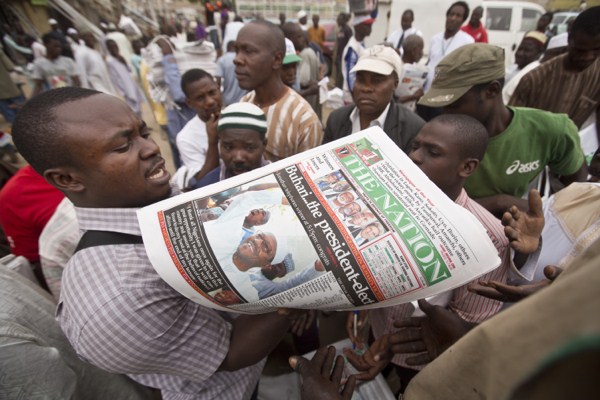After a six-week election delay in February, Nigerians went to the polls last weekend. To the surprise of many, they voted out an incumbent, President Goodluck Jonathan, who faced growing criticism for failing to address corruption, poverty and the threat of the militant Islamist group Boko Haram. Jonathan was defeated by 72-year-old Muhammadu Buhari, a retired general who led a successful military coup in 1983 and, more recently, was runner-up in the previous three presidential elections. Buhari’s decisive victory, which relied on substantial support from northern and southwestern Nigeria, was the first electoral defeat of an incumbent president in Nigerian history.
Buhari is more three-dimensional than he was portrayed in much of the international media coverage of the race, which stereotyped him as a former dictator whose appeal to Nigerians rested solely on his security credentials. In fact, he served as a military governor of the northeast in 1975-1976, then as federal commissioner for petroleum resources under Olusegun Obasanjo’s military government. After Nigeria’s brief Second Republic, Buhari led a coup and was military head of state from 1983-1985. Then, after he was ousted in another coup in 1985, Buhari later returned to government in the 1990s under military ruler Sani Abacha, serving as chairman of the Petroleum Trust Fund, which was tasked with allocating excess petroleum revenues to the states. Buhari’s career is controversial—some Nigerians recall his rule as a rare moment when the state actually fought corruption, while others dismiss his “War Against Indiscipline” as a farce. But his experience is varied and long and, most of all, extends beyond just security affairs.
Buhari’s election, solidified by Jonathan’s immediate concession when the results became clear, has strengthened Nigeria’s democratic institutions and could bring a higher level of competence to government. Yet change could be slow to materialize. Despite the country’s massive oil wealth, Nigeria’s problems are deeply rooted, from security threats and corruption to extreme poverty and underdevelopment. One test for Buhari will be whether he can assemble an inclusive team capable of solving these challenges.

